- A. Philip Randolph
- Abayomi Azikiwe
- Adam Sanchez
- Akashi Kaul
- Alabama
- Alana D. Murray
- Allison Acosta
- Allyson Criner Brown
- Amelia Boynton
- Amzie Moore
- Andrea Guiden Pittman
- Andrea McEvoy Spero
- Annie Devine
- Arkansas
- Art
- ASALH
- Audi Cornish
- Bayard Rustin
- Bernice Johnson Reagon
- Bill Bigelow
- Bill Fletcher Jr.
- Black Lives Matter
- Black Panther Party
- Black Power
- Bob Moses
- Book
- Books
- Brenda Randolph
- Brown v. Board of Education
- C.T. Vivian
- California Newsreel
- Carmen Gómez García
- Charles Cobb Jr.
- Charles E. Cobb Jr.
- Charles M. Sherrod
- Charles Payne
- Chris Hoeh
- Chris Seeger
- Civil Rights Act
- Claudette Colvin
- Claudio Saunt
- Clyde Kennard
- Colia Liddell Lafayette Clark
- colleen bell
- CORE
- Coretta Scott King
- Courtland Cox
- Craig Gordon
- Cristina Tosto
- CRMVet.org
- Daniel Perlstein
- Dave Zirin
- David Busch
- David Hill
- David Levine
- Dawn Keene
- DC
- Deborah Menkart
- Derrick Alridge
- Desegregation
- Dick Cluster
- Digital Collection
- Dorie Ladner
- Dr. Gordon Nembhard
- E.W. Steptoe
- Education
- Elementary
- Elizabeth A. Davis
- Ella Baker
- Eloise Greenfield
- Emilye Crosby
- Emmett Till
- Erika Landberg
- Eva Sperlng Cockcroft
- Eyes on the Prize
- Fannie Lou Hamer
- Fayette Colon
- FBI
- Federation of Southern Cooperatives and Land Assistance Fund
- Film
- Florida
- Freedom Schools
- Freedom Summer
- Gary Convention
- Georgia
- Grace Lee Boggs
- Hardy Thames
- Hasan Jeffries
- Herbert Kohl
- Herbert Lee
- Highlander
- Holly Barnet-Sanchez
- Holly Jansen
- Hope Martin
- Image
- Interactive Map
- Introduction
- James Boggs
- James Loewen
- James Meredith
- James Smethurst
- Janine Gomez
- Jeanne Theoharis
- Jenice L. View
- Jennifer Gallagher
- Jesse Hagopian
- Jessica Gordon Nembhard
- Jo Ann Robinson
- John H. Bracey Jr.
- John Hulett
- John Lewis
- Josh Healey
- Josh Ozersky
- Joyce Ladner
- Judy Richardson
- Julian Bond
- Julian Hipkins III
- Katie Kissinger
- Katie Lyman
- Katy Swalwell
- Kentucky
- Kimberly Spotts
- KKK
- Kwame Touré
- Labor
- Land
- Larry Miller
- Laurel R. Singleton
- Leah Douglas
- Lesson
- Linda Christensen
- Louis Allen
- Louise Bock
- Louisiana
- Luis Torres
- Lynda Tredway
- Maestra Productions
- Maggie Nolan Donovan
- Malcolm X
- Mamie Till
- March on Washington
- Maria Fleming
- Martin Luther King Jr.
- Matt Herron
- Medgar Evers
- MFDP
- Military
- Mira Luna
- Mississippi
- Montgomery Bus Boycott
- NAACP
- New York
- Nicolás Guillén
- Nonviolence
- Norm Diamond
- North Carolina
- Oral History
- Patty Bode
- Paula Young Shelton
- Pauli Murray
- Podcast
- Poetry
- Police
- Poor People's Campaign
- Prathia Hall
- Primary Document
- Prisons
- Quiz
- Randi Douglas
- Reading
- Redlining
- Resource Center of the Americas
- Richard Rothstein
- Rita Dove
- Robert P. Moses
- Rosa Parks
- Sam B. Hilliard
- SCLC
- SCOTUS
- Self-Defense
- Selma
- Septima P. Clark
- Sheyann Webb
- Sit-Ins
- SNCC
- SNCC Digital Gateway
- Sonia Sanchez
- Sports
- Stephanie Schmidt
- Stokely Carmichael
- Student Nonviolent Coordinating Committee
- Susan Guengerich
- Susan Nail
- Susan Oppenheim
- T. G. Lewis
- Ta-Nehisi Coates
- Teaching Idea
- Teaching Reflection
- Tennessee
- Texas
- Tiferet Ani
- Timeline
- Timothy Jenkins
- Transportation
- U.S. Foreign Policy
- Ursula Wolfe-Rocca
- Vanessa Williams
- Vann R. Newkirk II
- Vernon Dahmer
- Veterans
- Video
- Vietnam War
- Vincent Harding
- Vincent Intondi
- Virginia
- Voting Rights
- Voting Rights Act
- Wayne Au
- William P. Jones
- Yohuru R. Williams
- Zinn Education Project
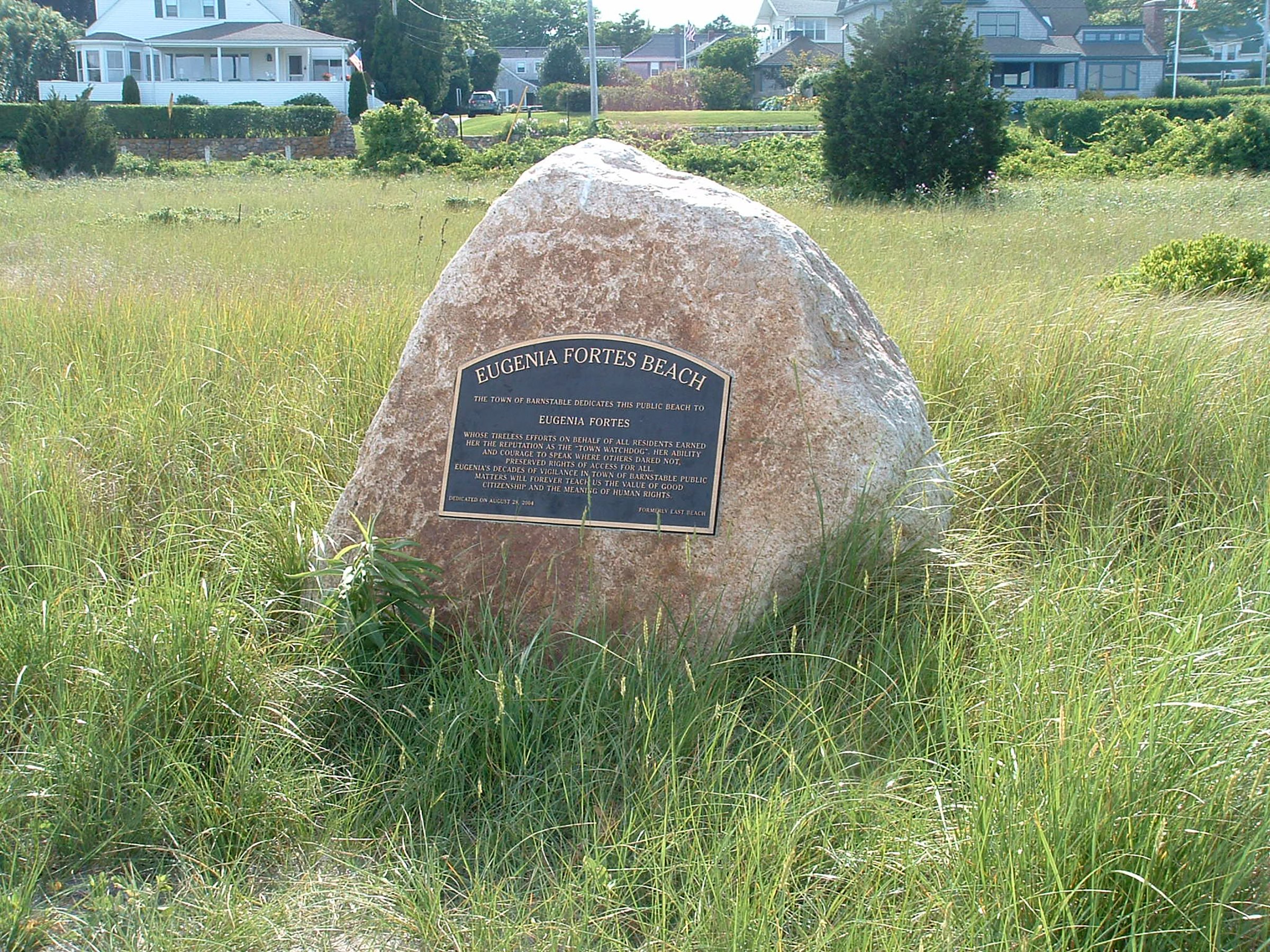
Sit Down Marie!: Eugenia Fortes at the Hyannis Port Beach
Teaching Reflection by Maggie Donovan
Students react to a story about two young African-American girls who refused to move to the colored section of the Massachusetts beach.

McComb History
The McCombLegacies.org website (now archived) was designed to share the history of McComb, Miss., with an emphasis on the stories of working people of all races, women, and young people and how they have strived for equity in labor, civics, education, economics, and the arts.

W. E. B. Du Bois to Coretta Scott King: The Untold History of the Movement to Ban the Bomb
Reading by Vincent Intondi
The Civil Rights Movement is often portrayed as purely domestic phenomena unrelated to foreign affairs, but many African Americans combined civil rights with peace, and thus broadening the Black freedom movement and helping define it in terms of global human rights.
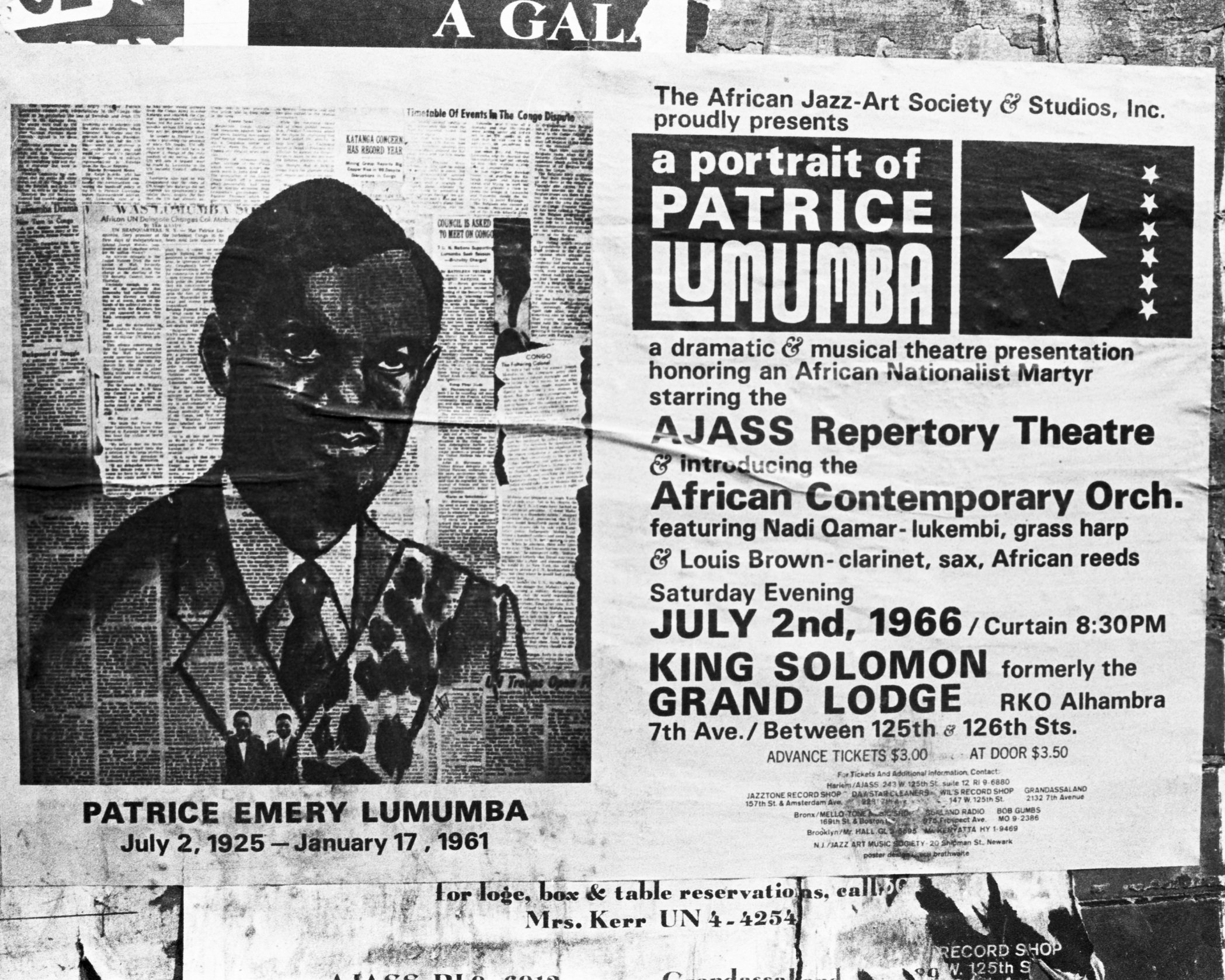
Introduction: Transnational Solidarity
Introduction by Teaching for Change
The Civil Rights Movement in the United States was connected to the international struggle against colonialism. Such well-known African American historians as W. E. B. Du Bois and Carter G. Woodson had long linked U.S. racism and segregation to the colonial system in Africa and other parts of the world.
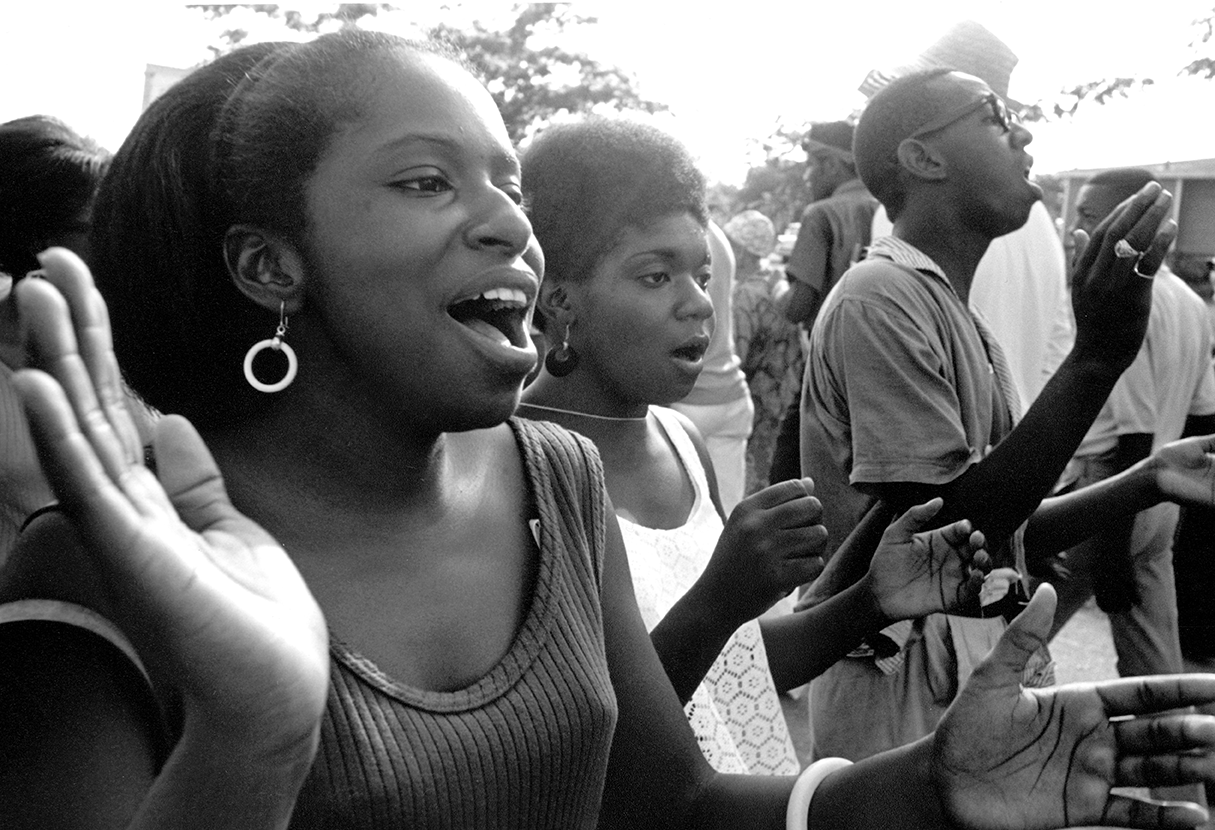
The Role of Freedom Songs
Reading by SNCC Digital Gateway
One cannot understand the history of the Civil Rights Movement absent the role of freedom songs. Here is a description of their importance from the SNCC Digital Gateway, followed by the song “If You Miss Me from the Back of the Bus.”

Introduction: Black Power
Introduction by Teaching for Change
If the nonviolence of the Southern Freedom/Civil Rights Movement frightened mainstream people in the United States, the Black Power movement confronted institutional racism with a youthful boldness and fearlessness unseen since enslaved Africans took up arms in the Civil War. In this section, important “founding documents” of the Black Power movement are examined. In addition, the section explores the impact of Black Power on other oppressed peoples in the United States.
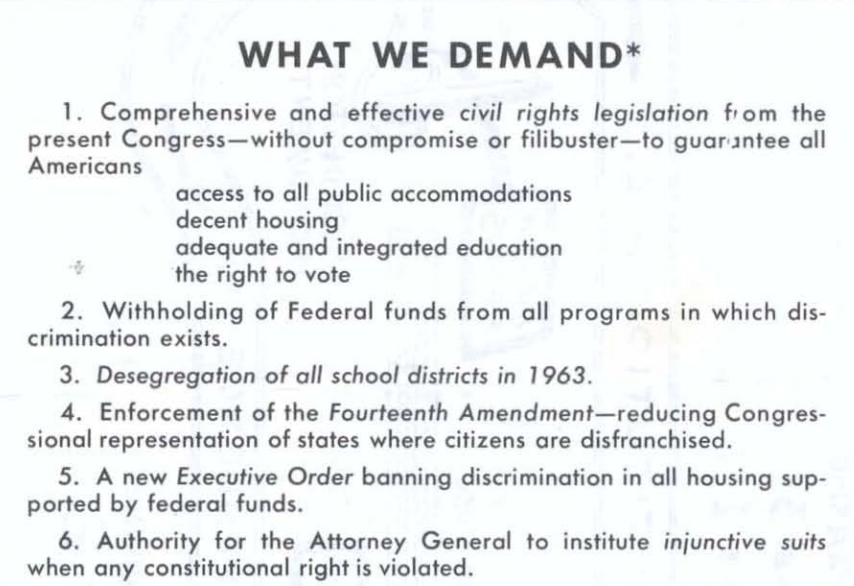
1963 March on Washington for Jobs and Freedom Statement and Demands
By heads of ten organizations calling for the March of August 28, 1963
The 1963 March on Washington had a list of ten demands. Half of the demands were not about integration or education – they were about labor and economic rights.

Digital Collections
Resource by Teaching for Change
A list of digital collections with content about the Civil Rights Movement.
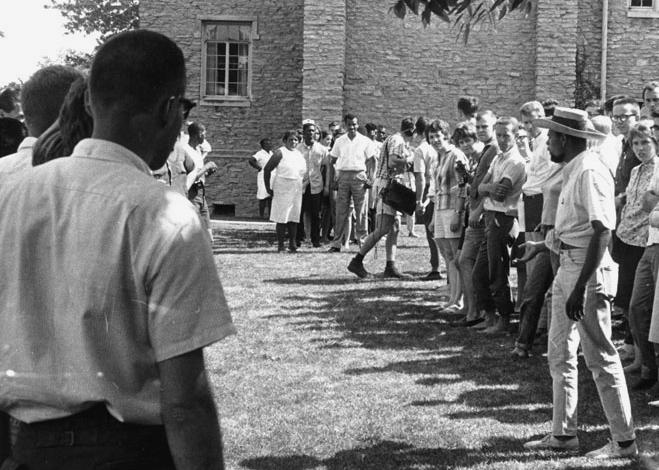
Uncovering the Movement: A Staff Development Seminar
Lesson by Alana Murray
A workshop designed to give teachers and other school staff a chance to examine their own understanding of the Civil Rights Movement and consider the impact of the traditional narrative on students.
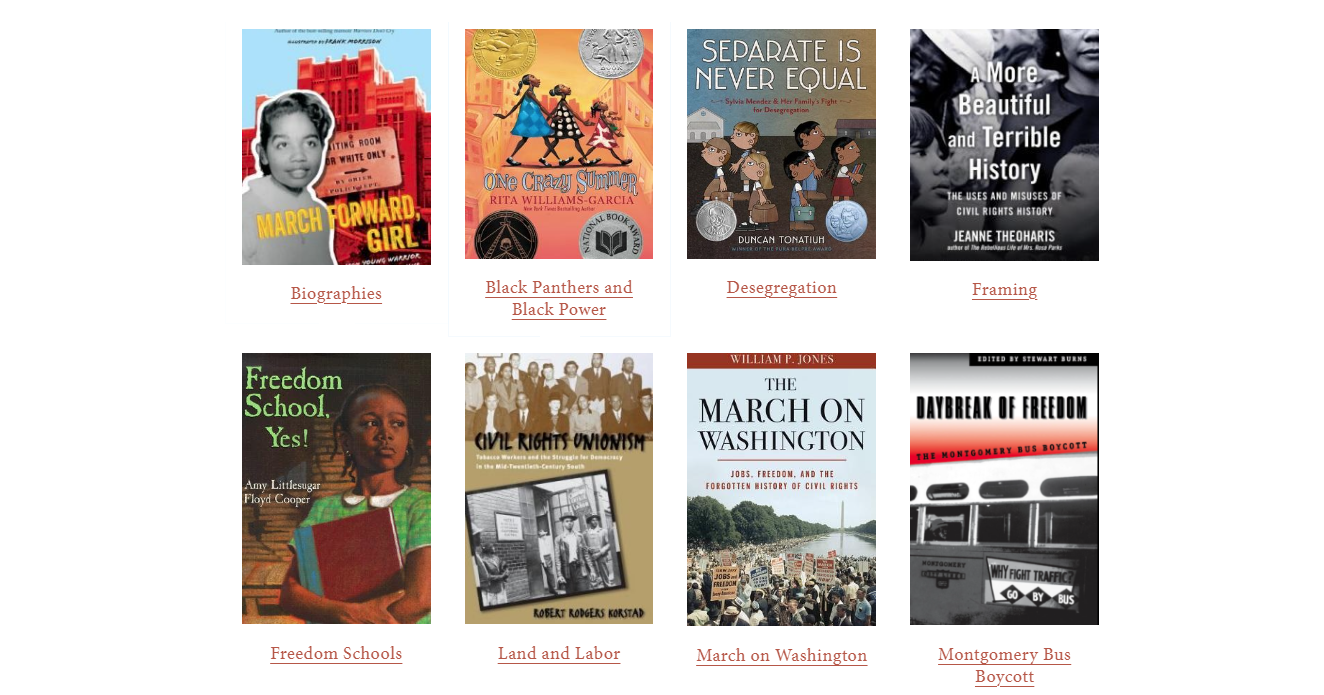
Books About the Civil Rights Movement
Resource by Teaching for Change
Booklists about the Civil Rights Movement by age range and topic.
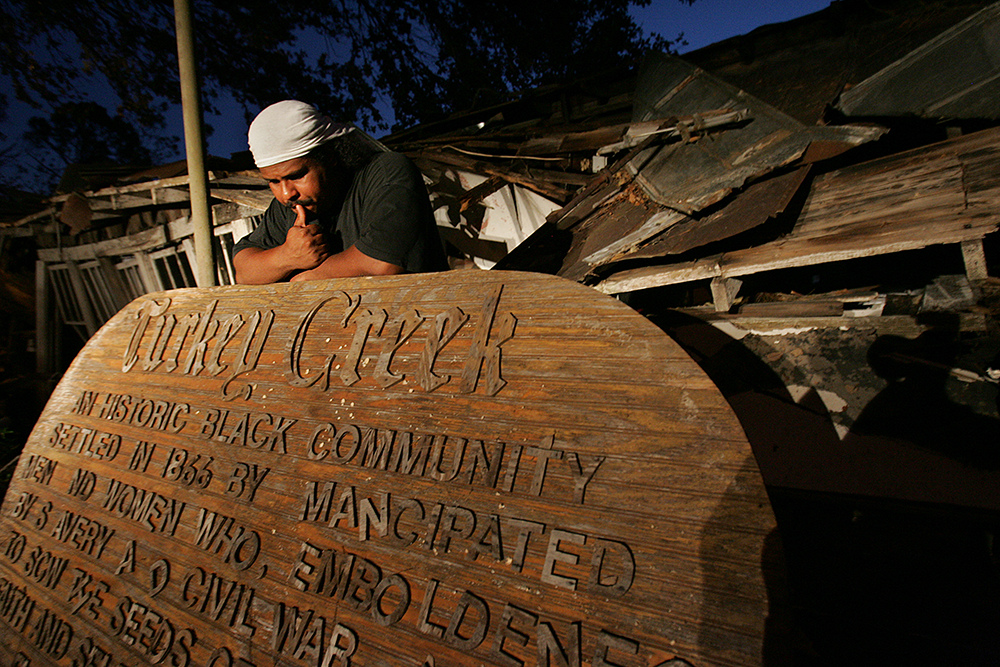
Looking for Justice at Turkey Creek: Out of the Classroom and into the Past
Teaching Reflection by Hardy Thames
Students study the African-American community of Turkey Creek, Mississippi, exploring whether the changes in the community relate to social and economic growth or social justice issues and then create projects with research and action components.
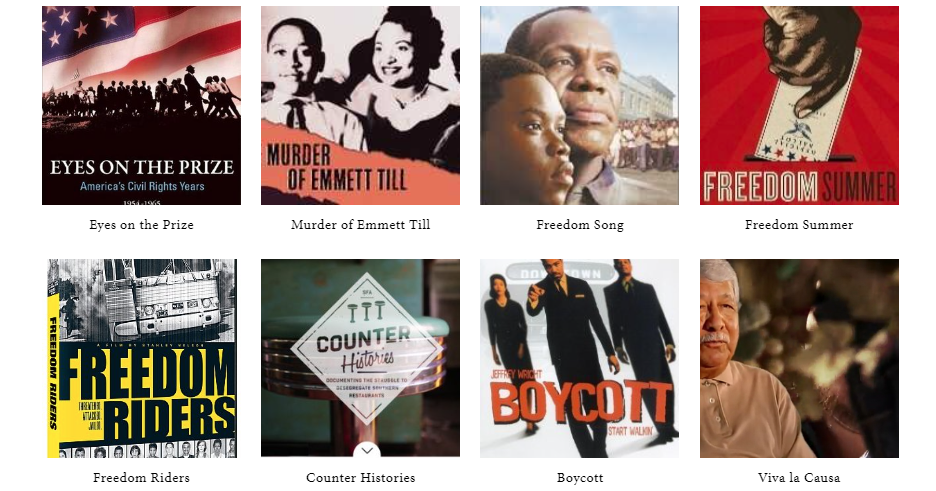
Films About the Civil Rights Movement
Resource by the Zinn Education Project
A selection of films about the Civil Rights Movement.

Teaching About Race and the Media
Lesson by Julian Hipkins III
The corporate media portrayed events happening across the country through a lens of white supremacy, ignoring or misreporting tales of state sponsored terrorism. This lesson introduces students to the impact of the corporate media on the Civil Rights Movement, the role of the Black press, and organizing by African Americans to hold the white press accountable.
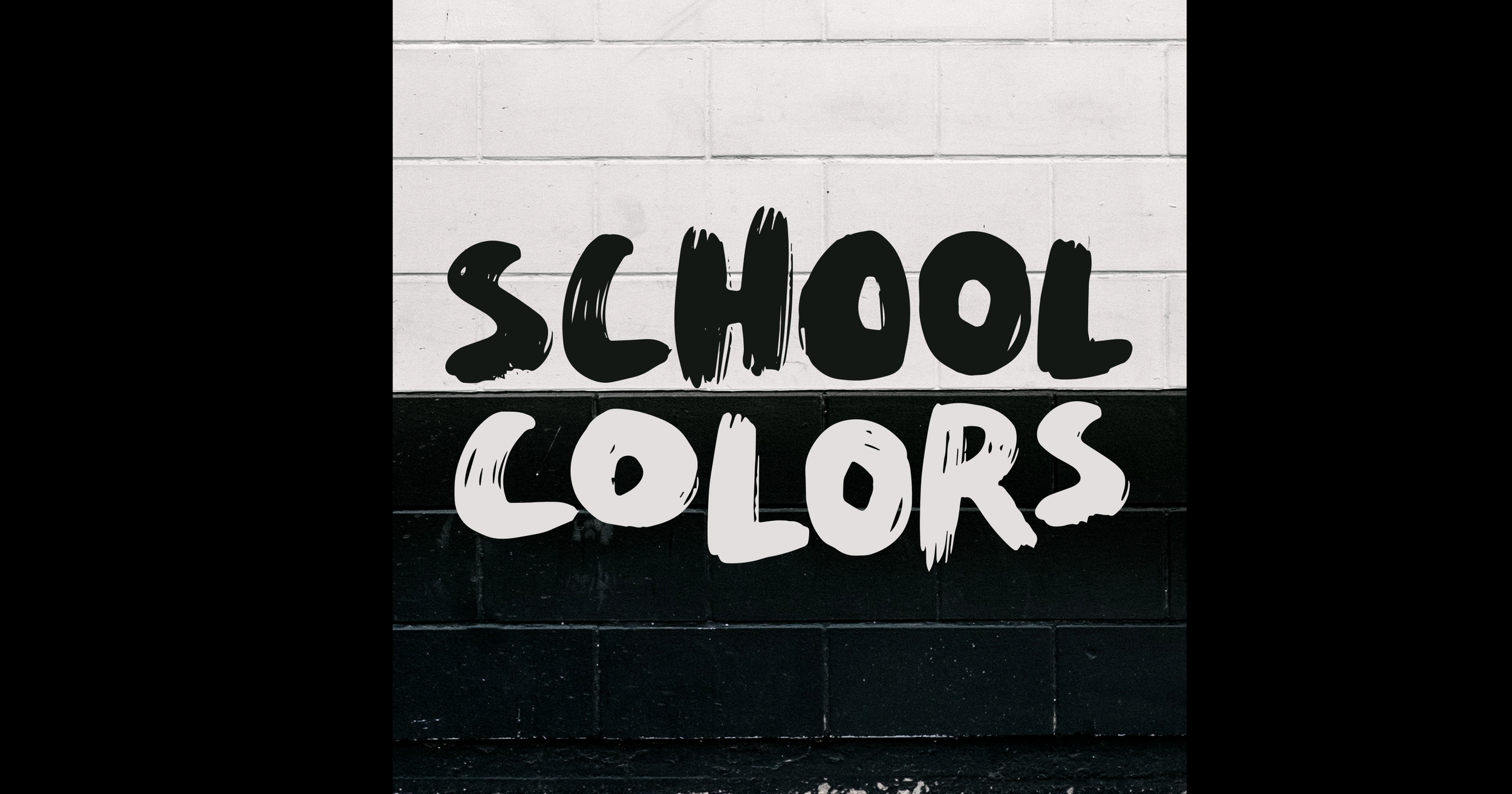
School Colors
Podacast by Mark Winston Griffith and Max Freedman
Season one of the School Colors podcast covers the history of Ocean Hill-Brownsville in Brooklyn where Black and Puerto Rican parents tried to exercise power over their schools and they collided head first with the teachers’ union — leading to the longest teachers’ strike in U.S. history in 1968.
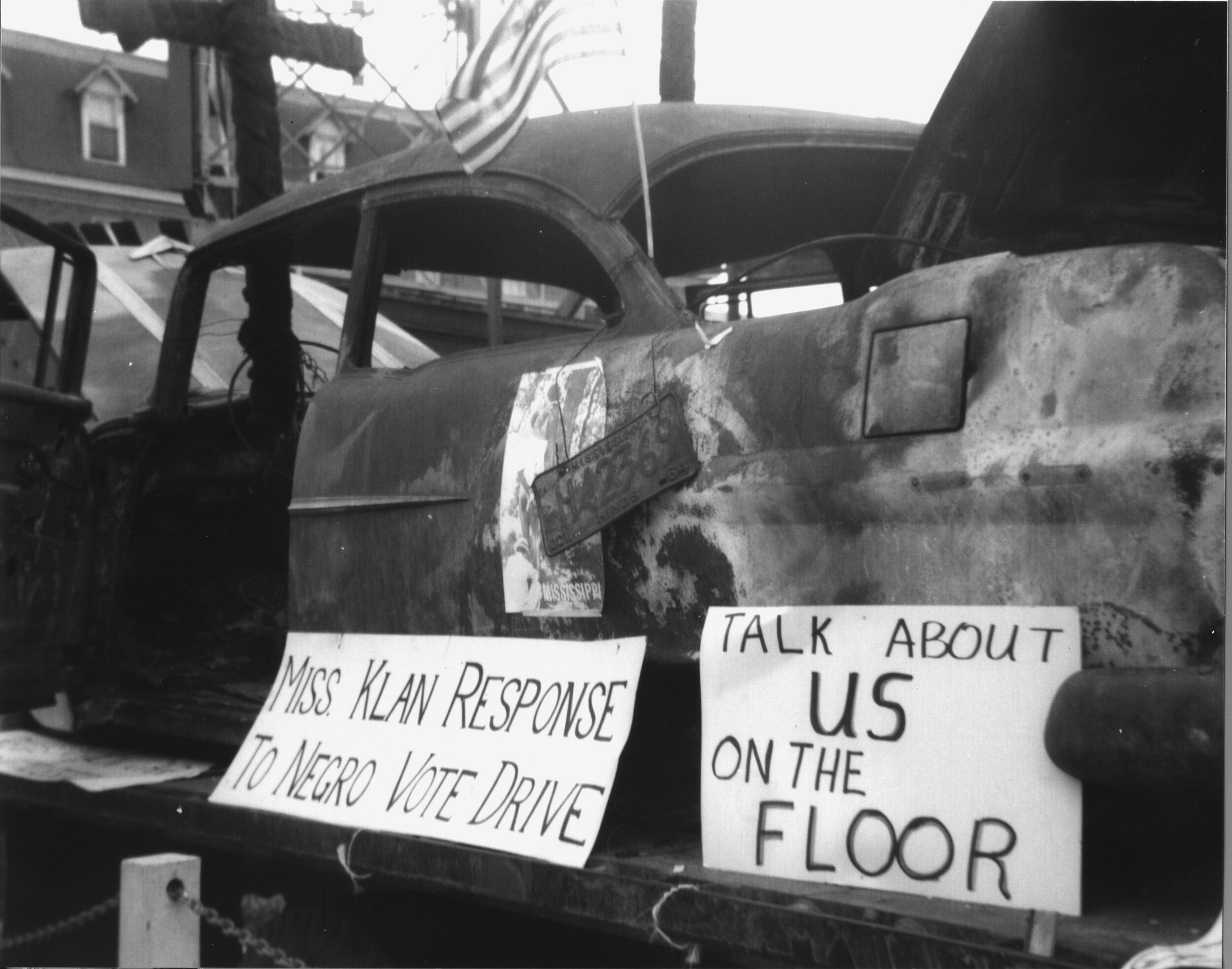
“Is This America?” 50 Years Ago Sharecroppers Challenged Mississippi Apartheid, LBJ, and the Nation
Reading by Julian Hipkins III and Deborah Menkart
The Mississippi Freedom Democratic Party arrived at the 1965 Democratic Party Convention in Atlantic City on a bus with more than 60 sharecroppers, farmers, housewives, teachers, maids, deacons, ministers, factory workers, and small-business owners. Students can learn from the Mississippi Freedom Democratic Party about how to take on the Goliaths in politics.
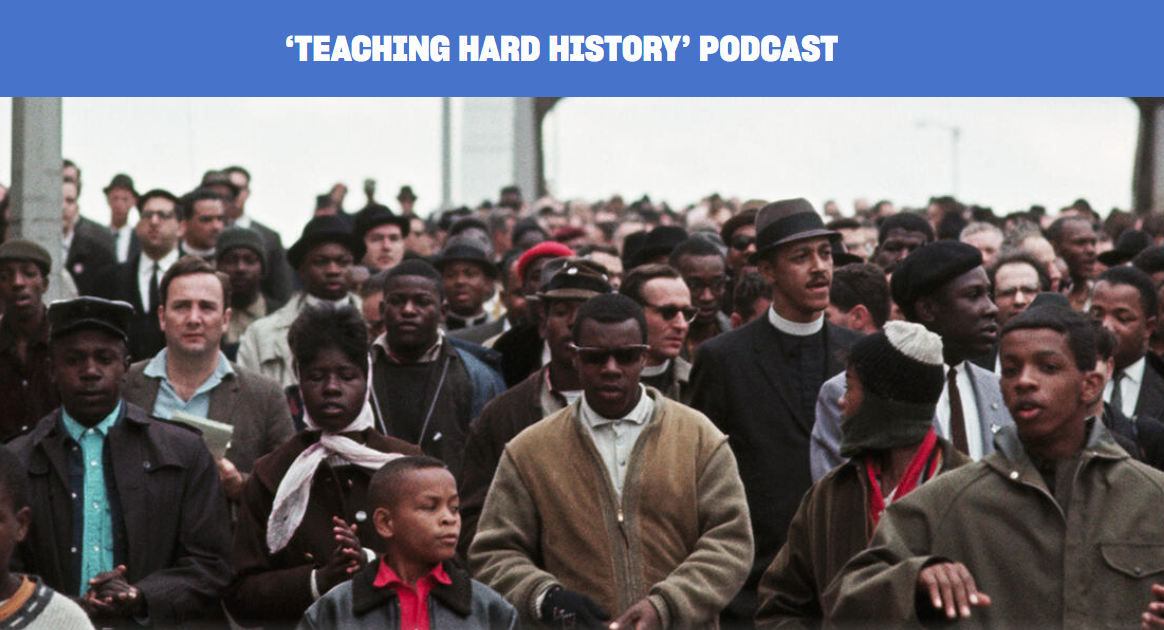
Teaching Hard History
Podcast by Hasan Jeffries
Season 3 of the Learning for Justice Hard History podcast focuses on the Civil Rights Movement.
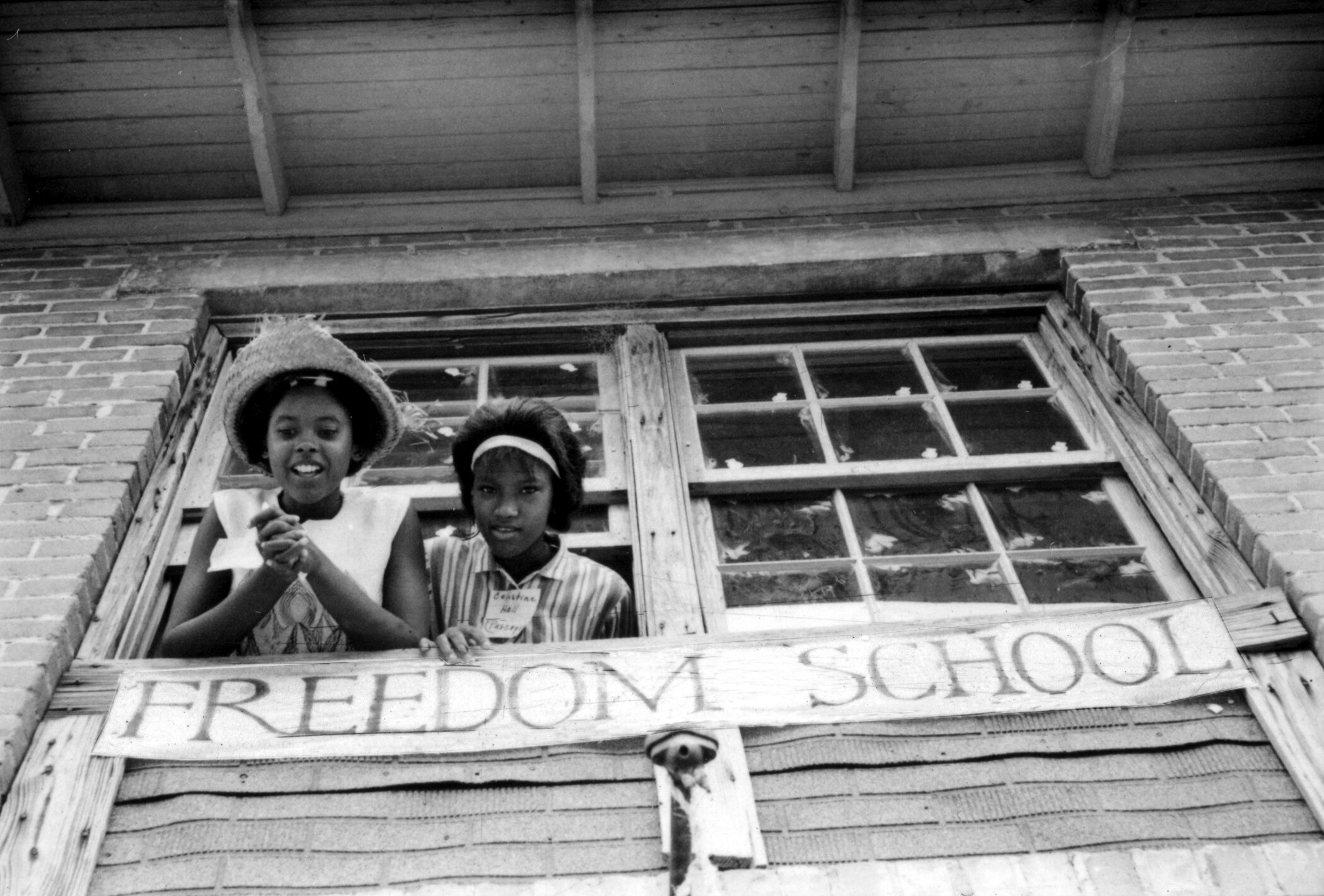
Exploring the History of Freedom Schools
Lesson by Deborah Menkart and Jenice L. View
This lesson uses primary documents to introduce the history and philosophy of Freedom Schools. The lesson is inquiry-based, hands-on, and engages students in critical reflection. Therefore, students learn about Freedom Schools not only from the readings, but they also experience the pedagogy.
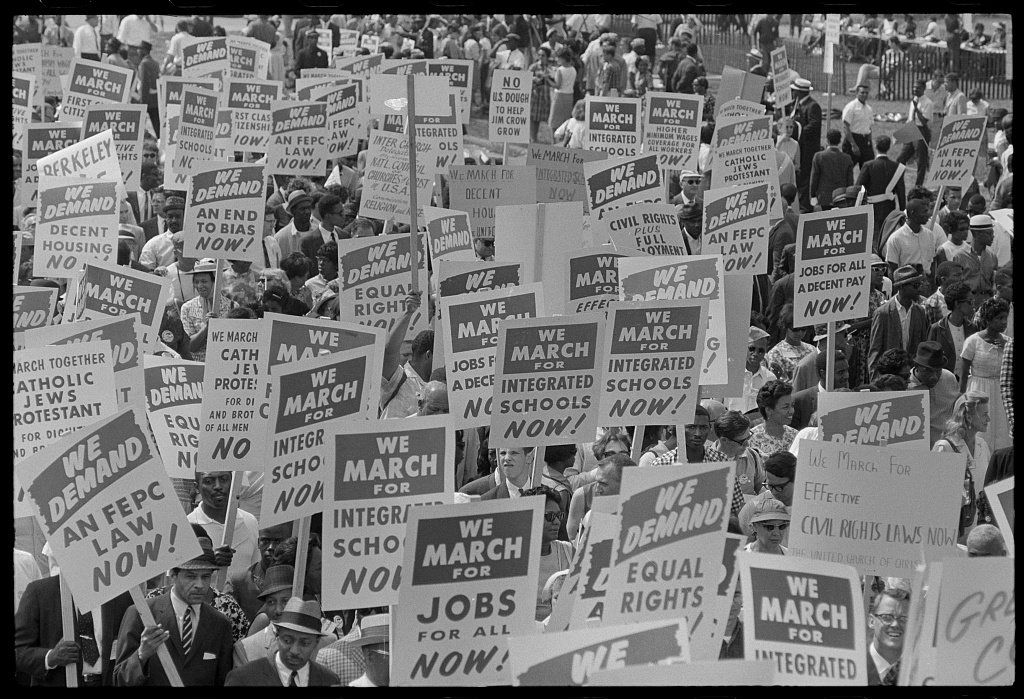
March on Washington Hidden History Quiz
Quiz by Teaching for Change
When most people think of the 1963 March on Washington for Jobs and Freedom, what comes to mind is Dr. Martin Luther King Jr.’s iconic statement, “I Have a Dream.” In truth, there was much more to this historic event than these four words in King’s speech. Teaching for Change designed this quiz about the 1963 March on Washington for Jobs and Freedom to challenge assumptions, deepen understanding, and inspire further learning.
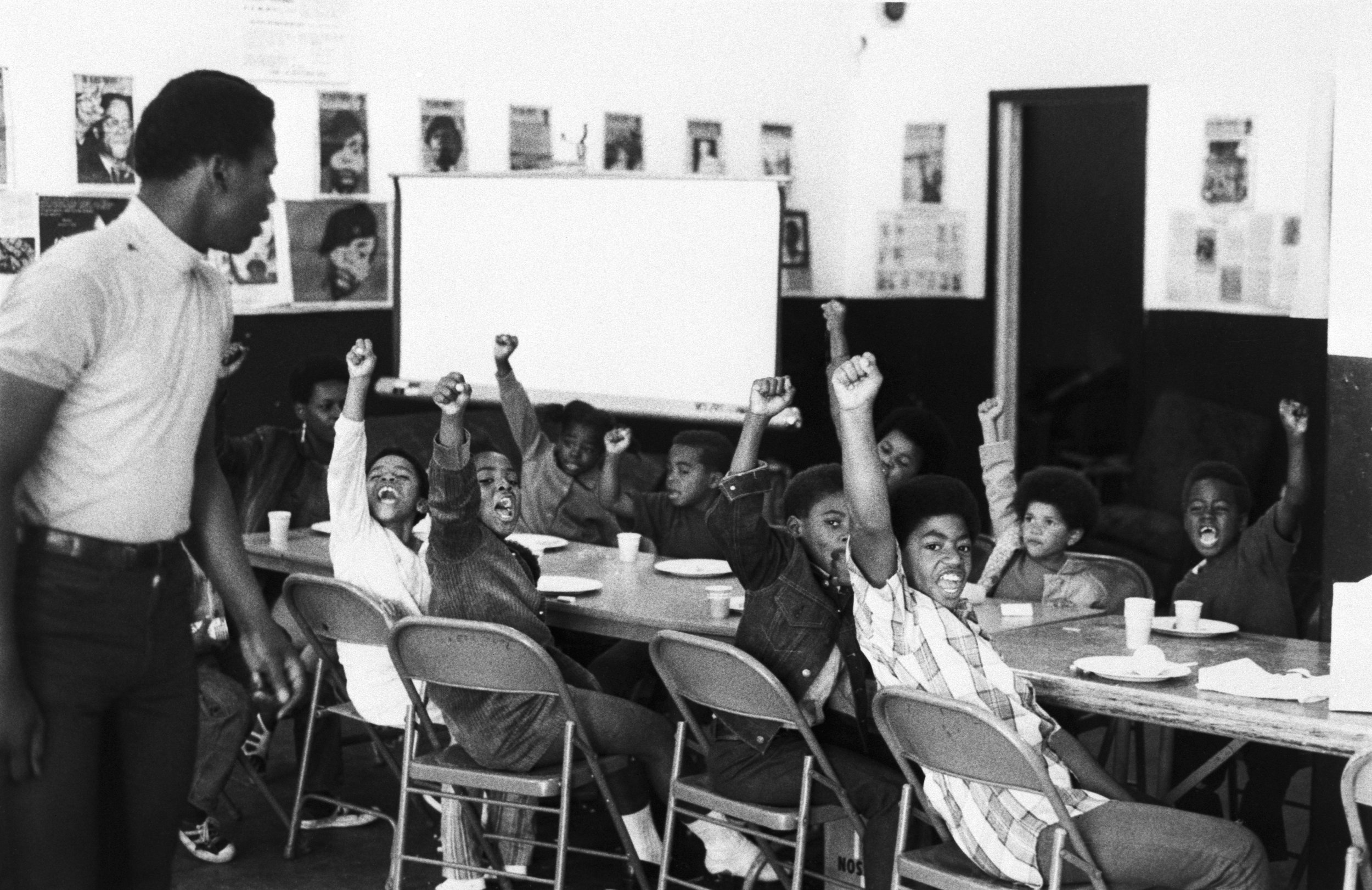
What We Don’t Learn About the Black Panther Party — But Should
Lesson by Adam Sanchez and Jesse Hagopian
A mixer lesson introduces students to the pivotal history of the Black Panthers.
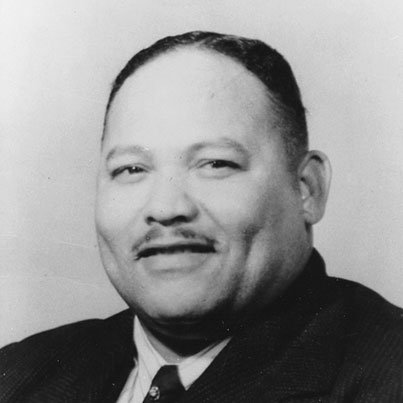
Murder of Reverend George W. Lee
Reading by Zinn Education Project
Rev. George Washington Lee, one of the first African Americans registered to vote in Humphreys County, Mississippi since Reconstruction, used his pulpit and his printing press to urge others to vote. He was murdered on May 7, 1955.
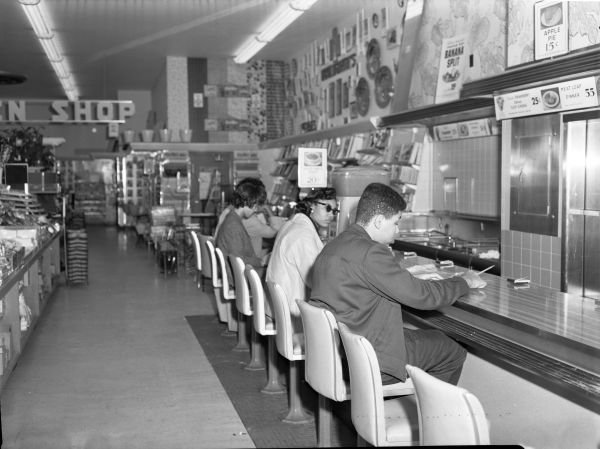
Sit-Ups
Teaching Reflection by Maggie Donovan
First graders learn about sit-in strategies.
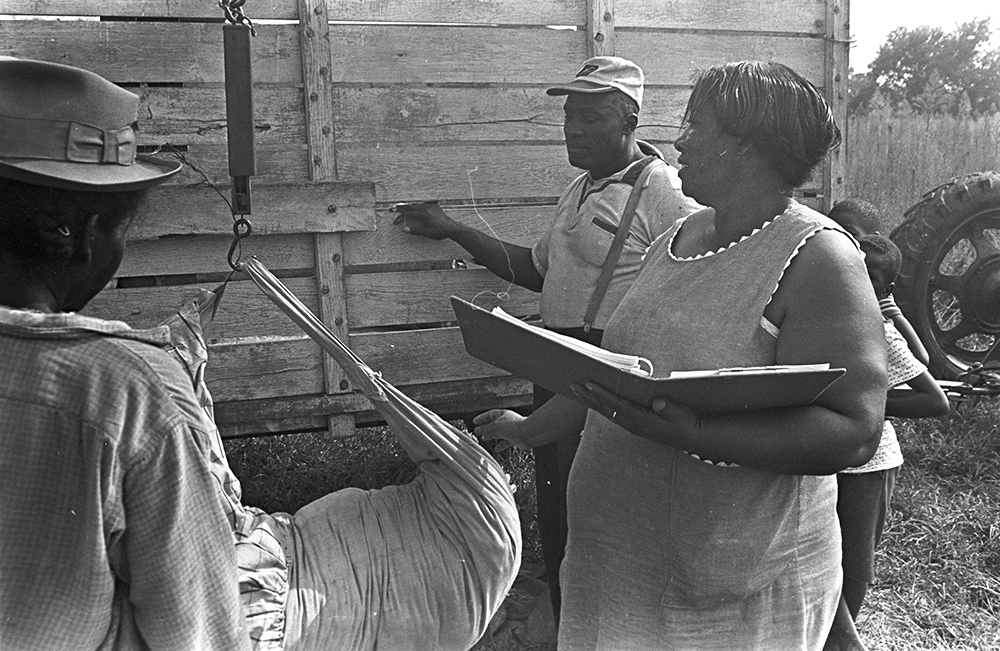
Introduction: Labor and Land
Labor and land have always been central to the struggle for civil and human rights in the United States. In this introduction, we share a few examples.
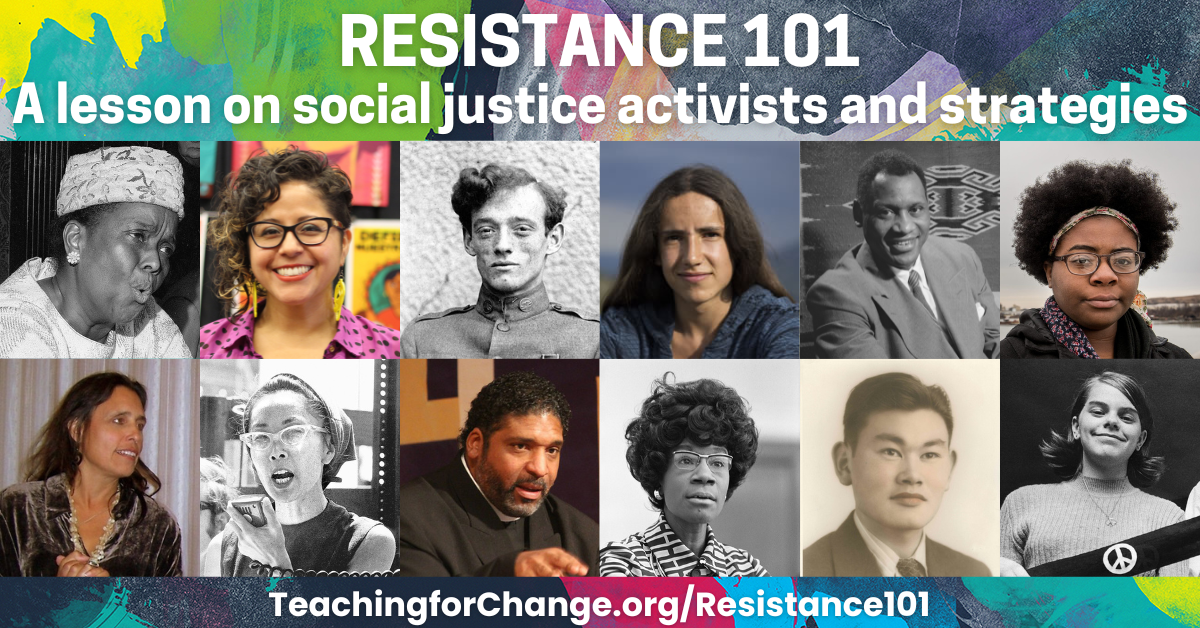
Resistance 101: A Lesson on Social Justice Activists and Strategies
Lesson by Allison Acosta and Deborah Menkart
A lesson to introduce students to people throughout U.S. history, including many young people, who fought for social justice and civic change using a range of strategies.
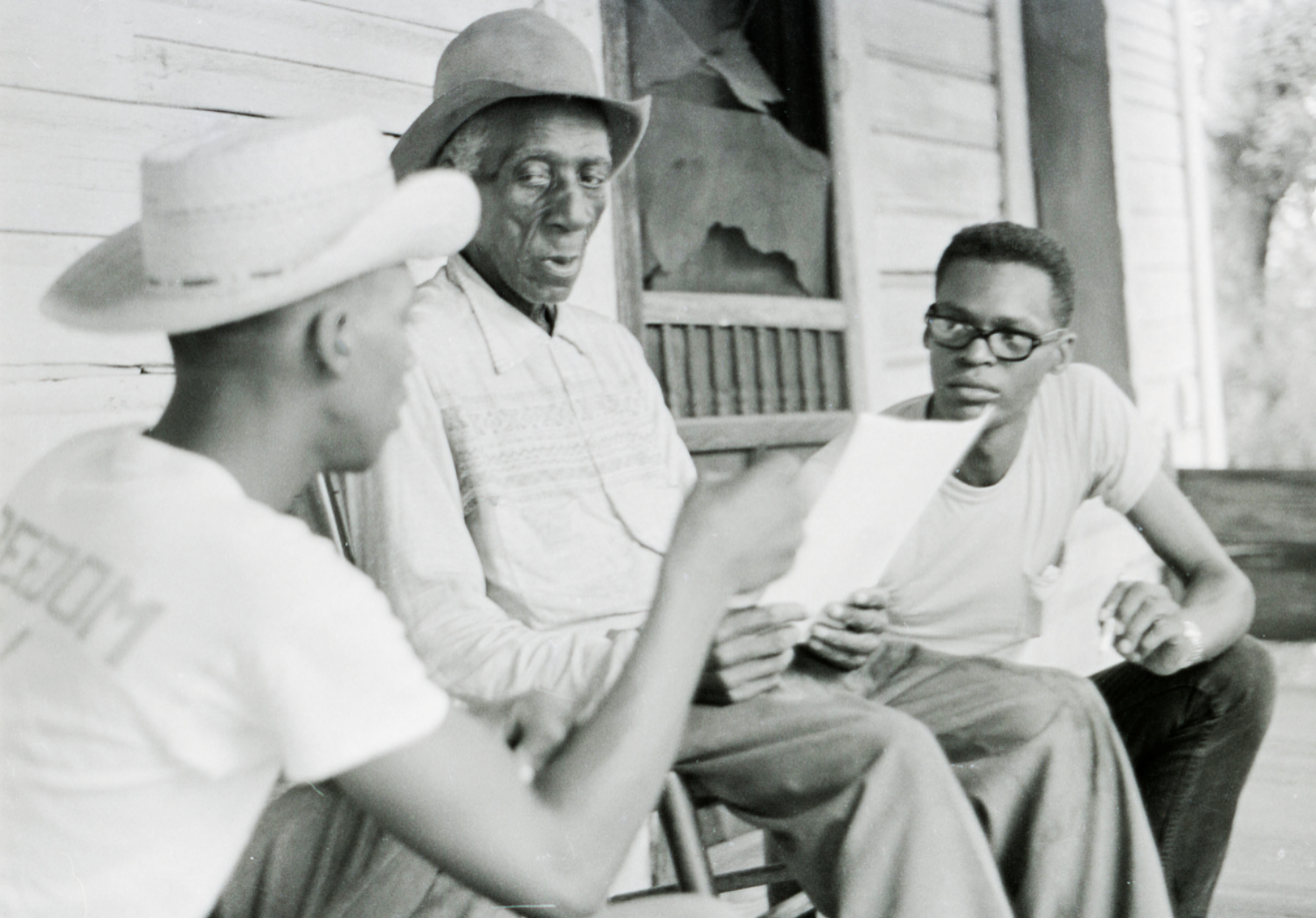
Introduction: Voting Rights
Learning the full history of the fight for voting rights is especially important today, in light of the 2013 Shelby v. Holder U.S. Supreme Court decision that struck down the 1965 Voting Rights Act provisions requiring certain states to obtain federal preclearance before changing voting laws.
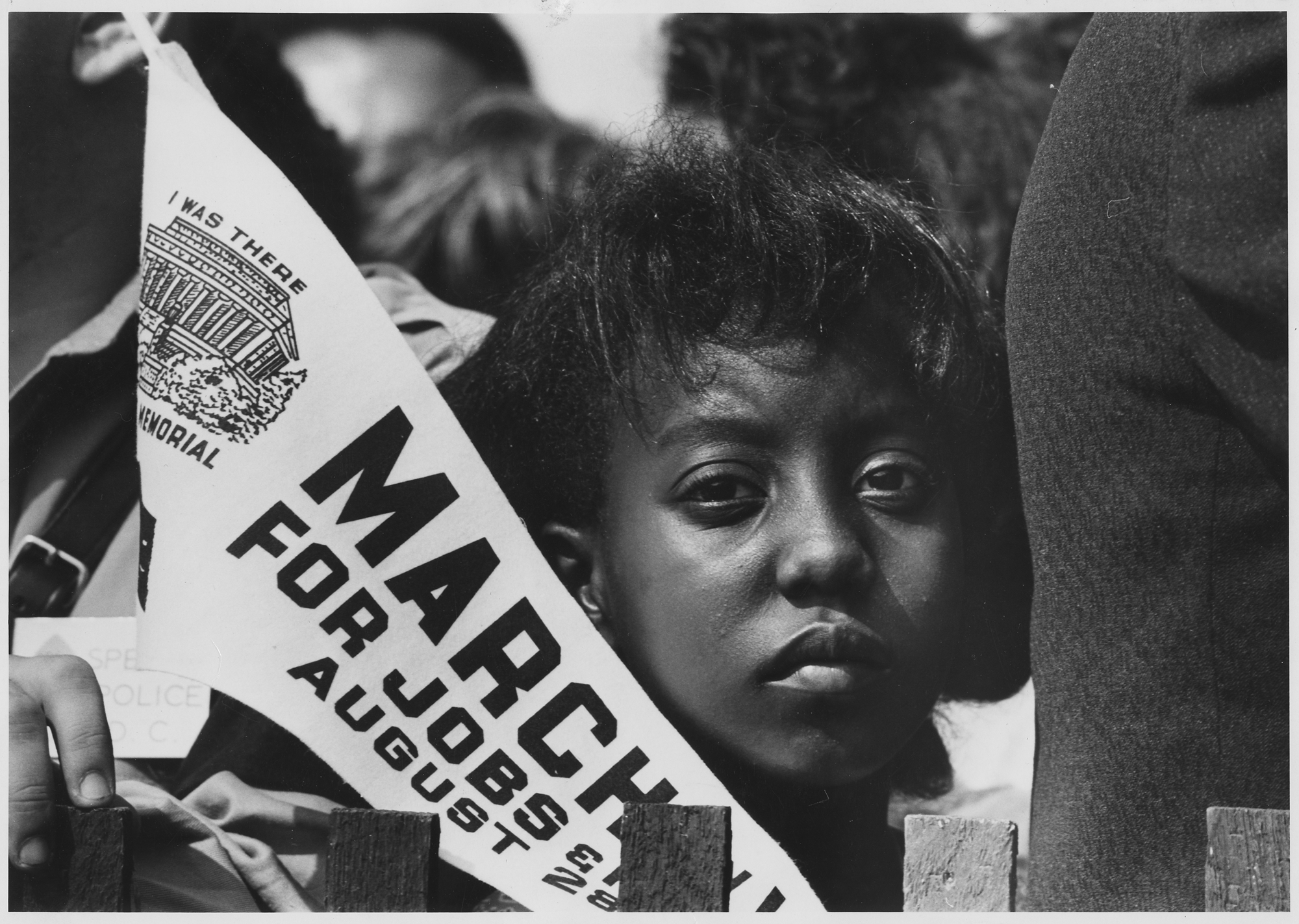
Claiming and Teaching the 1963 March on Washington
Reading by Bill Fletcher Jr.
The March on Washington did not begin as a classic civil rights march. It is barely remembered that the March on Washington was for freedom AND jobs, or that the march was initiated by black labor leaders.
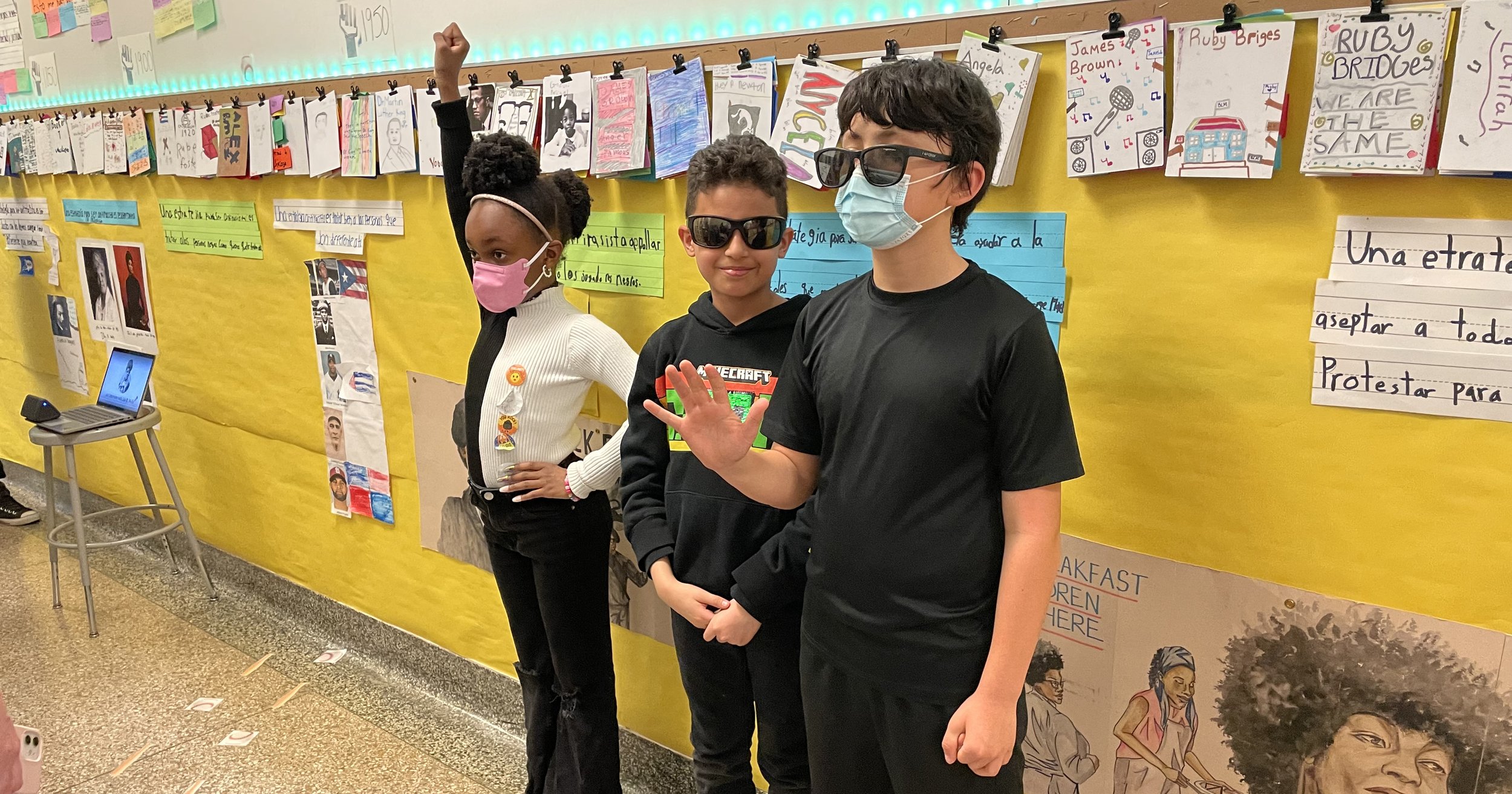
Introduction: Student Engagement
Introduction
This section highlights ways that teachers and young people can work together to learn about and document Civil Rights Movement history — and apply it to their lives today.
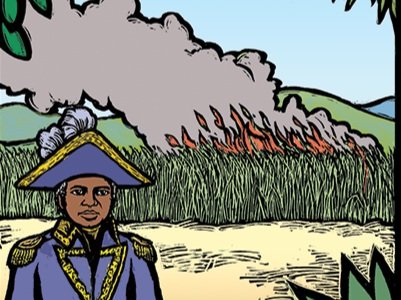
The Haitian Revolution: Central to U.S. History
Reading By Alana D. Murray
For Black people prior to the Civil War, the revolt of enslaved people in Haiti served as a beacon of freedom. These heroic actions of the Haitian revolutionaries resonated well into the 20th century. The events of the Haitian revolution shaped a Pan African identity that influenced the thinking of leaders in the Civil Rights Movement and the Black Power Movement.
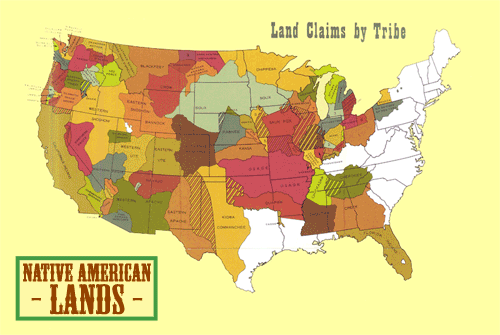
Native American Land Loss Maps
Image by Sam B. Hilliard
Five maps in a chronological series showing post-colonial land cessions in the continental United States and two additional maps showing land claims by tribe and present-day Indian reservations.
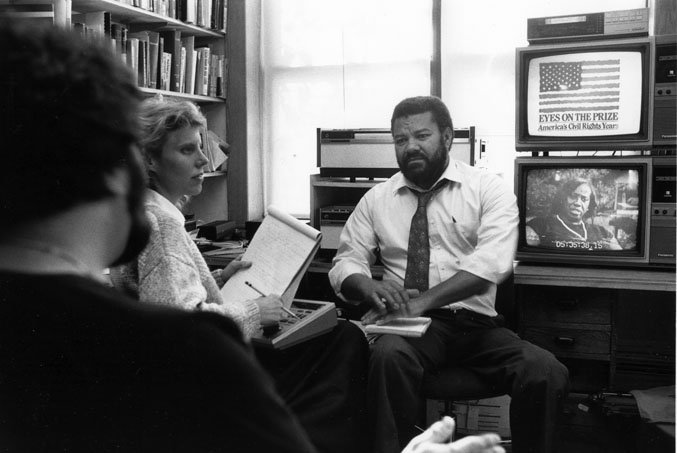
Teaching Eyes on the Prize, Teaching Democracy
Reading by Judy Richardson
Richardson shares key insights and considerations for teachers when using the Eyes on the Prize film.
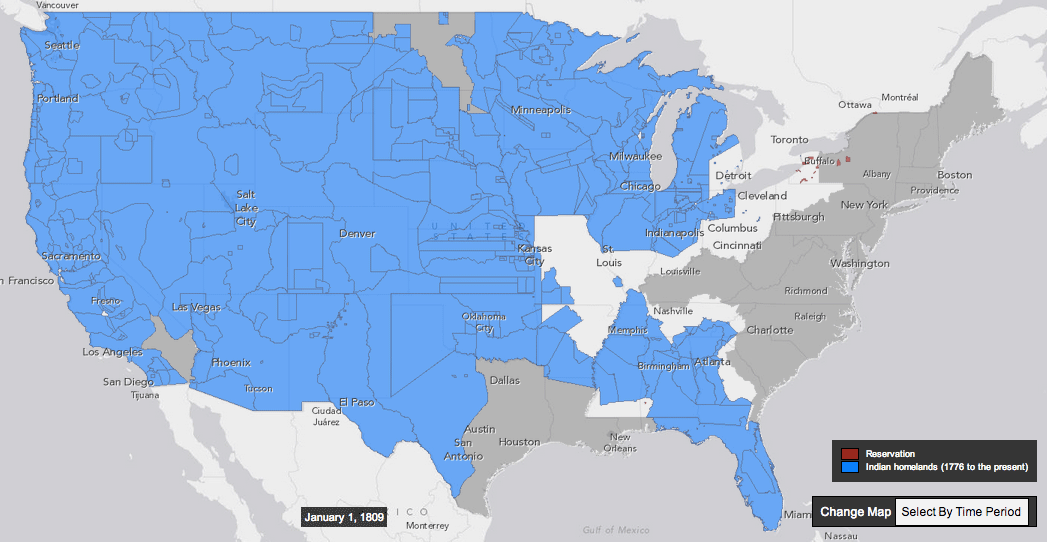
Invasion of America
Interactive Map by Claudio Saunt
This interactive offers a time-lapse vision of the transfer of Indian land between 1776 and 1887.
